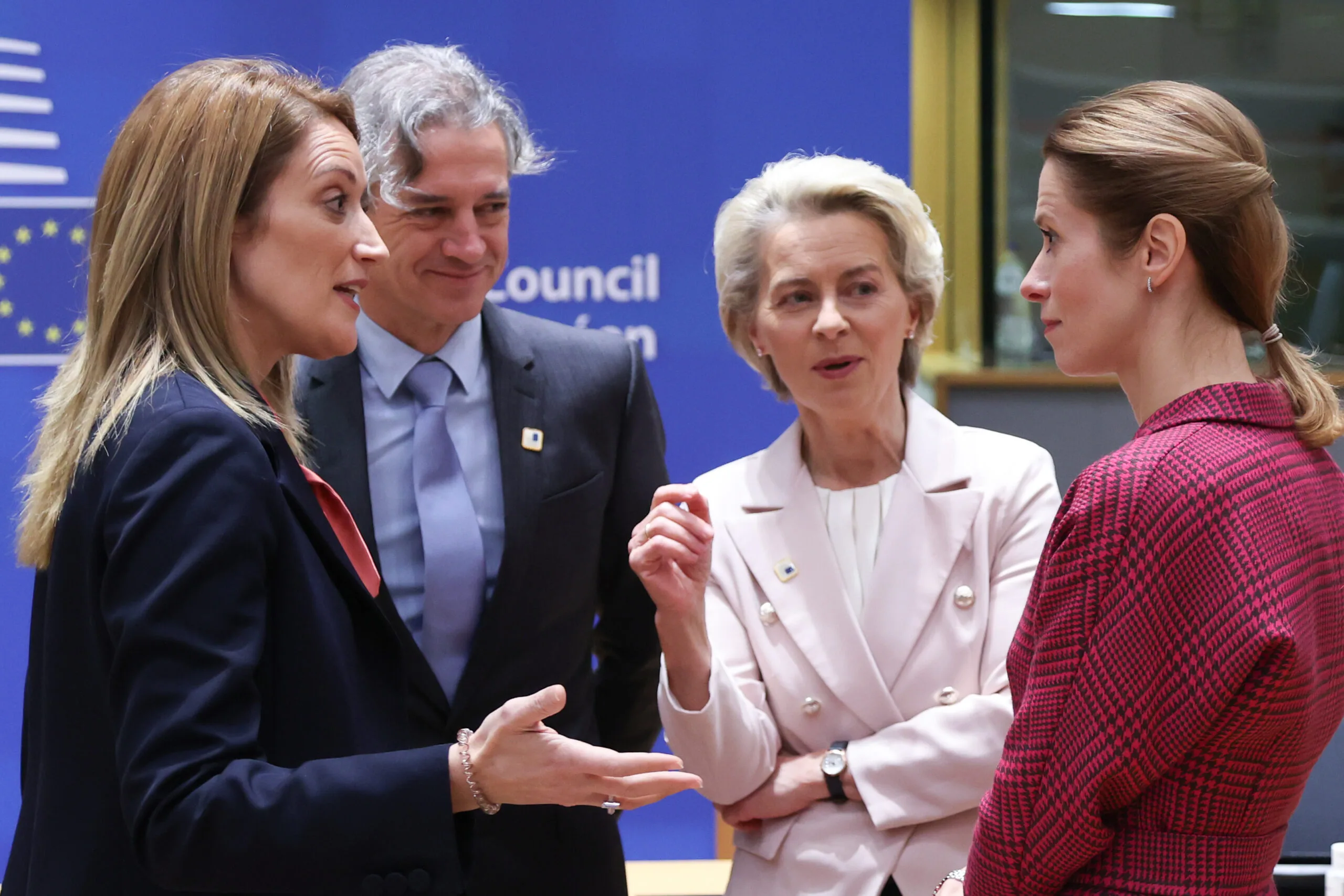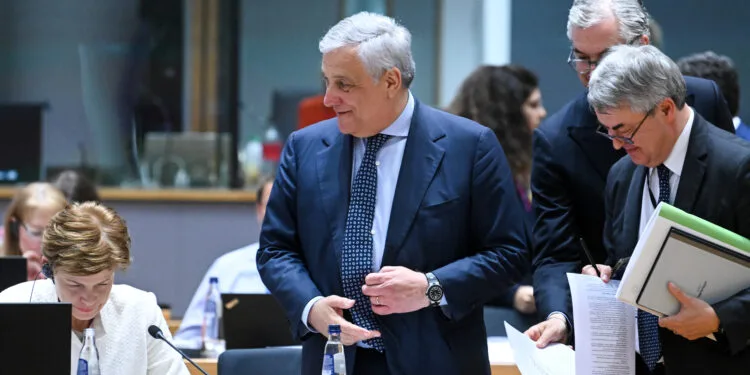Brussels – The Italian government is making clear the spoils it wants to receive at the level of EU appointments as it enters the week that will close with the summit of heads of state and government, where an agreement on the top jobs in the European institutions is expected. “I think Italy can’t not have a vice President of the European Commission and can’t not have a Commissioner with an important portfolio,” says Antonio Tajani upon arrival at the Council of EU Foreign Affairs Ministers in Luxembourg.
A two-time European Commissioner (and vice President of the Commission), former President of the European Parliament, Deputy Prime Minister, and leader of the only party in the governing majority that is part of the strongest European political group, the Populars: Tajani sets the demands because he is the best-suited and most influential man in Brussels to do so. “I believe that a founding country, because of the role it plays as Europe’s second-largest manufacturer, rightly has the right to have high-level recognition,” he claims. And thus a Vice-President of the European Commission — there are currently eight, including three executive Vice-Presidents and the EU High Representative for Foreign Affairs — essentially a ‘Super-Commissioner,’ who represents the President in his absence and usually takes over the most sensitive and influential portfolios. Tajani dots the i’s: “I think this is the least our country can ask and demand also because in the last five years, we have not had a vice President.”
While the post of Vice-President could – why not – go to the current Deputy-Premier, Tajani nevertheless puts in a good word for Raffaele Fitto, the current Minister for European Affairs and a loyal follower of Prime Minister Giorgia Meloni. “Let’s see what the government’s decisions will be. If you ask me, Fitto would be an excellent Commissioner because he has knowledge and experience. It’s something I’ve been saying all along,” the Forza Italia leader confirmed. But the most widely tipped names are in the background because the important thing is to make sure that Brussels “recognizes the weight of our country at the EU level” and “the fact that in Italy there is a stable government, the most stable in the whole of the EU.” Election data support Tajani’s thesis: if there was a crack in the governments in France and Germany, in Italy, the polls “confirmed the solidity of the majority.”
Alternating Socialists-Populars in the Council and the European Parliament
Considering the enthusiasm behind Italy’s right-wing parties, having an Italian, progressive European Council President would be a paradox. Enrico Letta is the name that is circulating quietly, given the resistance of some governments over former Portuguese Premier Antonio Costa. “It will be up to the Socialists to make official proposals, and then we’ll see,” Tajani glosses over the former PD Secretary, who in recent months has been in close contact with all the European chancelleries to draw up the report on the future of the EU single market that Ursula von der Leyen had tasked him with. On the Portuguese Socialist, a strong name to lead the institution that brings together the heads of state and government of the 27, Tajani explains: “The assessment is ongoing. We will have a summit of the European People’s Party on Thursday morning before the European Council, and we will talk about it.” Costa would be problematic for some right-wing leaders because he does not align with the EU’s tough migration policies. “There must also be guarantees on the Ukrainian issue,” the Italian deputy prime minister added.
In any case, Tajani is pushing for an alternation between Socialists and Populars in the Council Presidency. “After two and a half years of a Socialist-led Council Presidency, I think it would be fair to have two and a half years of a Popular-led Presidency because you have to consider the vote of European citizens.” The same goes in the European Parliament, where the Popular Roberta Metsola has a clear path to being confirmed as its leader. During the informal meeting of leaders on June 17, EPP negotiators had upped the stakes, calling for an entire term for the Populars at the European Parliament. However, Tajani rejoined the ranks, saying that alternating for two-and-a-half-years “is the practice in Parliament, and it must become the practice in the Council as well.” A relay that would also reopen the games for the Democratic Party, the first party in the Socialist group and which – given the probable renunciation of its role as group leader – would have the Presidency of the European Parliament.

The job of the High Representative for Foreign Affairs should go to the Liberals. With Estonian PM Kaja Kallas in pole position. A “level-headed” proposal, but Tajani warns: the important thing is that the head of European diplomacy -now Spanish Socialist Josep Borrell- “also takes into account the Mediterranean and southern question and not only the eastern one.”
To continue to sit in the most prestigious Chair, that of President of the European Commission, Ursula von der Leyen will have to put together the necessary votes to obtain the the confidence of the European Parliament. According to Tajani, the Populars “should look carefully at the Conservatives” to achieve a secure majority. While “it is impossible to open to the Greens” as “Europe has already decided” and “the vote was very clear.” But the Socialists – indispensable for a second Popular-led term for von der Leyen – have drawn and reiterated their red line: Tajani’s allies in Italy and their European political families cannot join the majority.
English version by the Translation Service of Withub






![Il presidente della Repubblica, Sergio Mattarella, con la presidente della Commissione europea, Ursula von der Leyen [Bruxelles, 21 maggio 2025. Foto: Emanuele Bonini per Eunews]](https://www.eunews.it/wp-content/uploads/2025/05/mattarella-vdl-120x86.png)


![Il presidente della Repubblica, Sergio Mattarella (sinistra), con il presidente del Consiglio Europeo, Antonio Costa [Bruxelles, 20 maggio 2025. Foto: Quirinale]](https://www.eunews.it/wp-content/uploads/2025/05/mattarella-costa-120x86.jpeg)